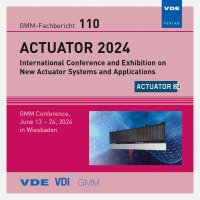Easy access to smart materials data and models using an ontologybased data and model access approach
Conference: ACTUATOR 2024 - International Conference and Exhibition on New Actuator Systems and Applications
06/13/2024 - 06/14/2024 at Wiesbaden, Germany
Proceedings: GMM-Fb. 110: ACTUATOR 2024
Pages: 4Language: englishTyp: PDF
Authors:
Courant, Robert; Mertens, Jana; Leemhuis, Mena; Oezcep, Oezguer; Dahlmann, Martin; Stark, Sebastian; Boehm, Andrea; Pagel, Kenny; Hinze, Maximilian; Pinkal, Daniel; Wegener, Michael; Wagner, Martin; Neubert, Holger; Sattel, Thomas; Maas, Juergen
Abstract:
Smart materials can be used as bidirectional transducers responding to various physical fields (e.g. electrical, magnetic, and thermal fields), eanbling a use as sensors, actuators, and generators. One challenge in developing smart material transducers is the access to material data and models. Different working principles, measurement and analysis methods, as well as data storage approaches often lead to heterogeneous and partly inconsistent datasets. However, easy and multiscale access to material data and models enables efficient research and development with regard to the selection of the materials and their optimization towards specific applications. Therefore, we developed a system build on the ontology-based data access (OBDA) approach, a method to access such heterogeneous datasets easily and quickly. This approach is extended in our multidisciplinary work to incorporate a model access, enabling material models to transform material data across multiple scales to compute new responses beyond stored data. The advantages are demonstrated using exemplary use cases for four subclasses of smart material: thermal and magnetic shape memory alloys, piezoelectric ceramics, and dielectric elastomers.


